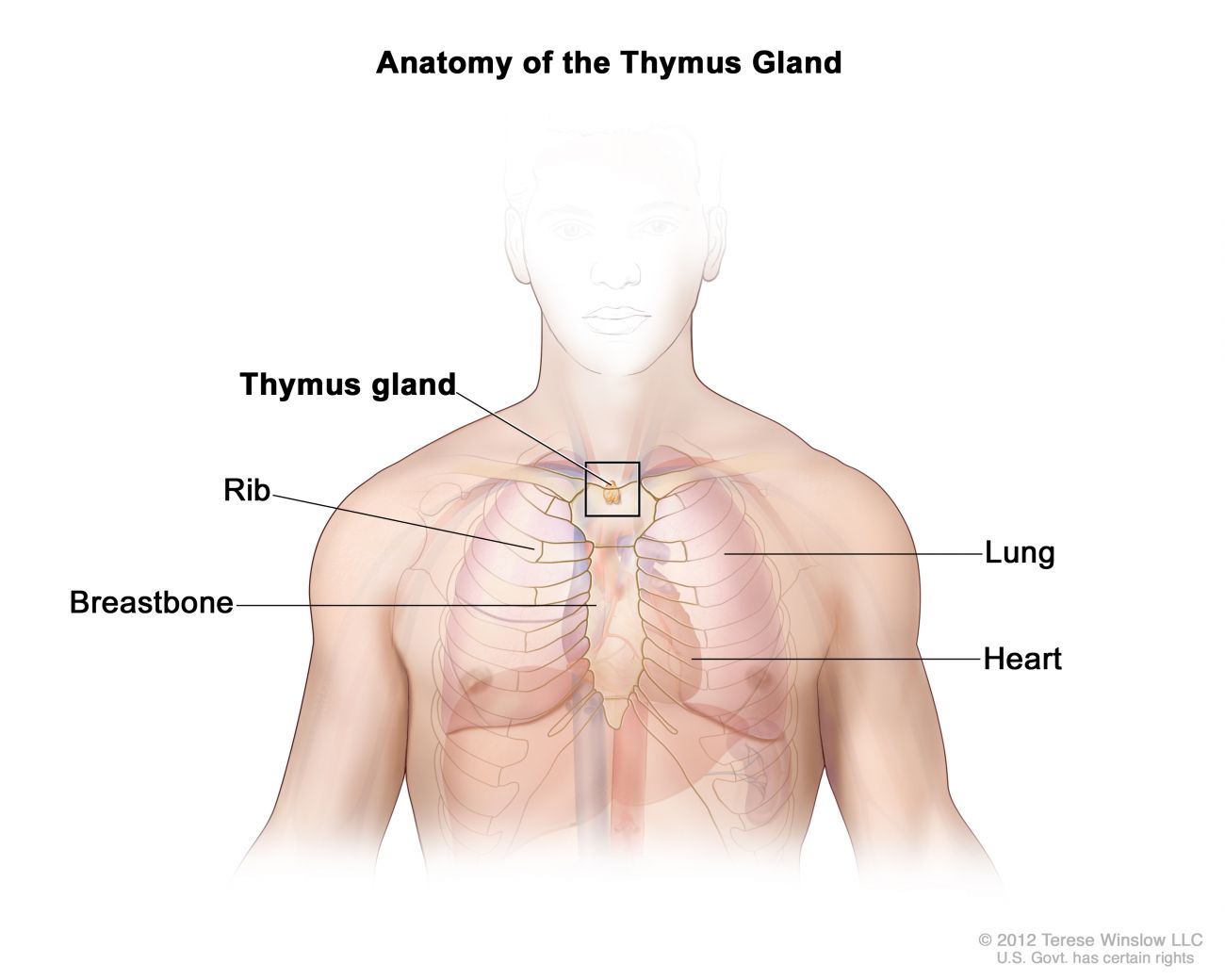Cancer that starts in the thymus is rare, with fewer than one case per 100,000 people diagnosed in the United States each year. The cause of this cancer type remains unclear.
Types of thymus cancer
Thymoma
Most thymus cancers are thymoma. Cancer cells develop on the gland’s surface and appear similar to normal thymus cells. Thymoma grows slowly, rarely spreading beyond the thymus. Thymoma has been linked to autoimmune conditions such as
- Myasthenia gravis: a disease in which antibodies made by a person’s immune system prevent certain nerve-muscle interactions, causing weakness and vision impairments.
- Rheumatoid arthritis: an autoimmune disease that causes pain, swelling, and stiffness in the joints, and may cause severe joint damage.
- Lupus erythematosus: a chronic, inflammatory, connective tissue disease that can affect the joints and organs.
Treatment for those conditions may lead doctors to discover the thymoma.
Thymus carcinoma (also called type C thymoma)
Less than 1 percent of thymus cancers are thymus carcinoma. Cancer cells develop on the thymus gland’s surface, but unlike thymoma, these cancer cells look very different from normal cells, are aggressive and tend to grow and spread quickly. Thymus carcinoma is more challenging to treat and has a higher rate of recurrence. Thymus carcinoma is divided into subtypes, depending on the cell type in which the cancer began.
Rare Experts in a Rare Cancer
It can be difficult for patients with this rare cancer to find the experts they need in one place. Our multidisciplinary experts of the thymus team have the unique expertise to diagnose and treat thymus cancer.
Meet the Thymus TeamThymus carcinoid (neuroendocrine) tumor
Carcinoid or neuroendocrine tumors are called cancer in slow motion because they start small and grow slowly. Thymus carcinoid tumors account for 5 percent of thymus cancers. About 25 percent of thymus carcinoids occur in patients with a rare genetic syndrome called multiple endocrine neoplasia type 1 (MEN1) syndrome — an inherited disorder that affects the endocrine glands and can cause benign tumors in the parathyroid and pituitary glands and the pancreas.
Another cancer type associated with the thymus is lymphoma. The thymus produces white blood cells called T-lymphocytes, which help protect the body from infection. If lymphocytes become cancerous, they can develop into lymphoma.
Symptoms of thymus cancer
Thymus cancers don’t typically cause symptoms. When they do, the symptoms can mistakenly be attributed to a cold or flu. Always see a physician if you have the following:
- A cough that doesn't go away
- Chest pain
- Trouble breathing
Carcinoid tumors in the thymus sometimes release hormones that may cause symptoms, including:
- Flushing or redness of the skin
- Diarrhea
- Shortness of breath
